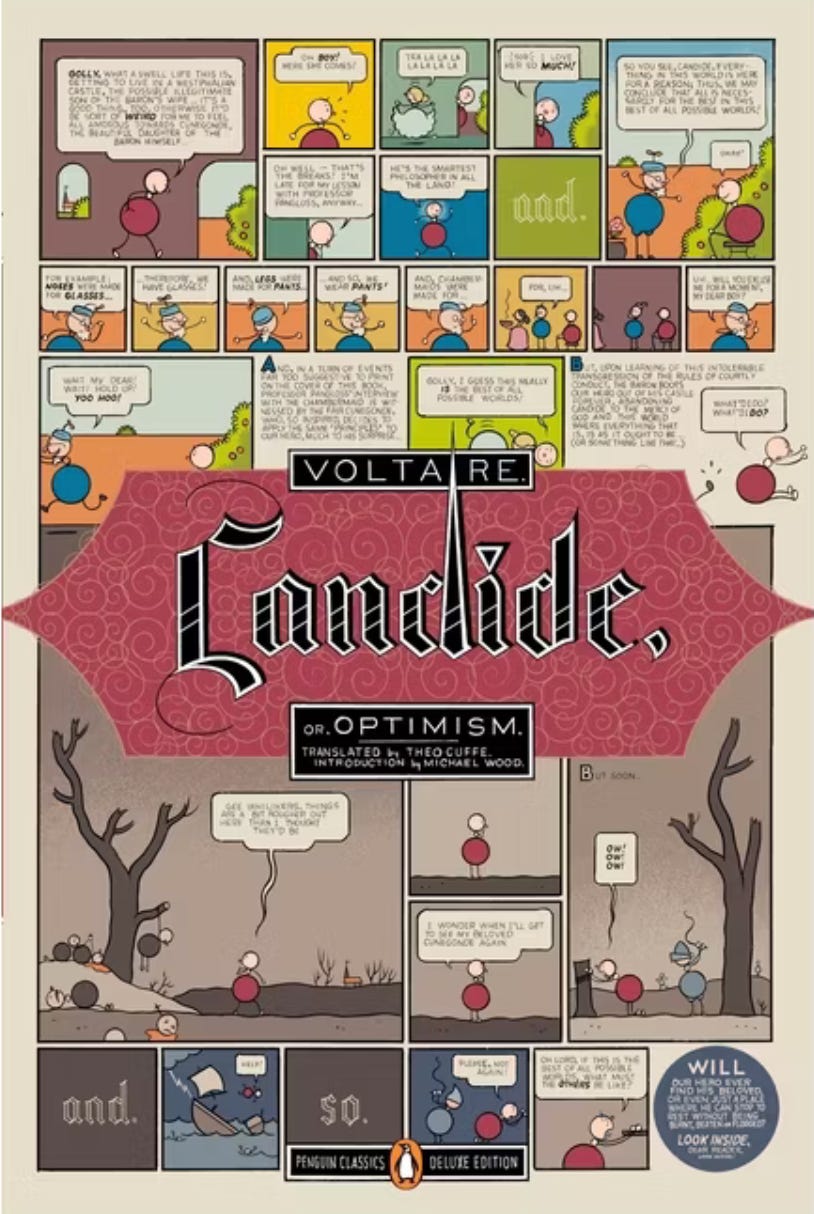Hello and good morning dear readers. Today I wanted to share with you a short list of the books I’ve been reading this past week. It’s been a busy time in my life, as I’ve just recently moved homes. But here’s what I’ve managed to read amidst the chaos.
They’re all relatively short texts, so hopefully you’ll consider picking up one of these yourself, if you haven’t done so already.
Happy reading,
Julian
1: Love and Youth: Essential stories, by Ivan Turgenev
This very attractive collection of Turgenev stories comes from the Pushkin Press Essential Stories series. They’re beautifully printed, and small enough to read on the go.
The main attraction of this slim volume is a short story titled First Love. It details the painful paradoxes of young love, and examines the emotionally fraught price we pay when idealization cedes to harsh reality.
2: Lives and Deaths: Essential Stories, by leo Tolstoy
In contrast to the Turgenev collection on love, these short stories deal with death and dying. The first story, The Death of Ivan Ilych is rightly considered one of Tolstoy’s masterpieces. Tolstoy tells the story of the life and passing of a country lawyer named Ivan Ilych, whose life -and ultimate death- are unremarkable, and yet in that sense universal. As Tolstoy puts it: “The finished story of Ivan Ilych’s life was a most simple and ordinary one, and most terrible.”
But the story also ends on a hopeful note. After struggling to face his mortality, and the seeming futility of his life, Ivan finally finds peace and acceptance in the moment of his passing. He realizes that what dies with death, is not just life, but rather death itself.
And in this recognition, he overcomes his fear of death.
““It’s over”, said someone over him.
He heard these words and repeated them in his soul. Death is over, he told himself. No more death. He drew in air, stopped midway through the breath, stretched out, and died.”
Tolstoy reminds us that death is not just a fact of life, but also a concept of the mind. In life, it feels like death only happens to other people. In fact, there is almost a secret relief when we hear of somebody else’s passing (“glad it wasn’t me”). Tolstoy is ruthlessly observant about the way in which death marks the very experience of life, and yet in so doing he manages to neither romanticize or trivialize it. Rather, by writing about death, Tolstoy cuts closer to the bone of life than almost any other writer before or after.
3: Candide: or optimism, by Voltaire
In this classic of French comedic writing, Voltaire satirizes the romantic Bildungsroman (coming-of-age novel) and the very concept of Leibnizian optimism (the idea that we live in the best of all possible worlds.) In the opening chapter we meet the eponymous young hero Candide, living respendently in a lord’s castle, and tutored by a Leibnizian scholar who preaches universal optimism: everything happens for a reason. All is governed by a divine plan, etc.
And yet..when Candide is expelled from the castle for falling in love with the Lord’s daughter, he enters into the real world. He experiences the contingency of human violence and the wanton cruelty of the world. Over and over again, Voltaire seems to be asking, “how can this be the best of all possible worlds"?”
And yet it manages to be a very funny story. It mines its contradictions to great comedic effect, and is filled with morbid, deadpan humor. The kind of humor that comes unexpectedly with great pain.
But Voltaire was also making a philosophical argument. Philosophical optimism was an inherently reactionary belief, because it argued that the world could not, and should not be changed. Everything was as already as God intended it to be.
Against this, Voltaire suggests that the powerful have convinced us that nothing can be changed because they seek to benefit from the status quo. The rulers, kings, exploiters, colonizers, they all claim divine authority. This, suggests Voltaire, is not optimism, but a cynical pessimism. True optimism, therefore, must be synonymous with Enlightenment, with man’s innate will to know the world and know himself. Optimism is a naive belief that things will turn out for the best. Hope, on the other hand, is the belief that we can always keep moving forward, little by little, in pursuit of a better world.
Julian
Thank you for reading my newsletter. If you’d like to support my work please consider becoming a paying subscriber. It makes a huge difference. As a paying subscriber you can also access a weekly podcast where I discuss what I’m reading. Click below if you’d like to sign up. Thank you.






